
To be a public school teacher in the new millennium is to be under constant scrutiny, both as a self-critic and from outside. Though the true outcomes of great teaching are essentially unmeasurable, new state-mandated evaluations pick at the edges of sheer competency and compliance by attempting to measure that which can be collected or seen.
The result is a doubling-down of stress and time, with so many hours per day given over to documentation and meetings that our time planning for and delivering instruction becomes threatened. Gone, it seems, is the teachable moment; gone, too, is the depth that brings love and true understanding: if a lesson cannot stand on its own, look like it was supposed to on paper, and correspond directly to at least one question on the state-written test that follows, the black mark will haunt forevermore.
In response, teachers are leaving the profession in droves: hardly a week goes by without yet another teacher’s early retirement condemnation going viral. In my own school, almost a fifth of our faculty has disappeared for warmer, more friendly climates since the school year began. The rest of us live in constant fear, frayed at the edges and cut to the core: too overwhelmed to do anything well, and constantly concerned that we have missed something that might make or break our careers.
But I am young enough to think I am invincible, or at least, unwilling to go without a fight. And so, despite my insistence that excellence should be evident in any moment, I found myself overthinking this Wednesday’s planned observation. And because I am ever the iconoclast, at my best on the edge, I planned something fun, if risky: a lesson on how poets use questions to call attention to the limitations of understanding, starting with Shakespeare’s Shall I Compare Thee To A Summer’s Day, and concluding with an activity analyzing Langston Hughes’ A Dream Deferred.
For students who have failed, and are failing. Who come to school sometimes, entering two thirds of the way into class with a swagger and a yell that distracts and disrupts, or stay home because it is too cold, or they missed the bus again. Who have been sullen, and distracted. Who have watched a score of of their classmates drop out, or just stop coming, until we hardy few – the three or four or six who show up most days – find ourselves leaning over a common table, pulling out our hair, putting away the phones over and over again, dancing around the truth as the hourglass sand threatens to drown us all.
 I talk a good game in the hallways about how the new evaluation tool we use in my district: about how the tool is sound, but an inconsistent and aggressively biased application of it is a major focal point of the terror and frustration we feel as teachers. But it is also true that the threat of observation can prompt a healthy, deliberate attention to detail and self-reflection, a sort of critical, vocational soul searching which, when it works, can push us to be our best. It is a social scientist’s Heisenberg principle, in which the act of being observed changes the subject, using pressure to turn coal into diamond.
I talk a good game in the hallways about how the new evaluation tool we use in my district: about how the tool is sound, but an inconsistent and aggressively biased application of it is a major focal point of the terror and frustration we feel as teachers. But it is also true that the threat of observation can prompt a healthy, deliberate attention to detail and self-reflection, a sort of critical, vocational soul searching which, when it works, can push us to be our best. It is a social scientist’s Heisenberg principle, in which the act of being observed changes the subject, using pressure to turn coal into diamond.
Over the last week, as I began to pay more precise attention to my practice in the class, and as our population has finally become stable, there was a change in the air. Sure, the kids and I still fought to stay on task, an activity more like wrangling cats than truly teaching. But they started asking questions in ways that reveal minds turning over, about my relationship to poetry, and about the poems themselves. And the shift towards poems that share their language and cultural lineage – of Pablo Neruda, and Martin Espada – seemed to prompt the beginnings of ownership, as if knowing that poets spoke their languages, too, was a key to the magic that evaluation tools call “student-centered learning”.
And when it works, it really works.
Yesterday, the stars aligned.
Four students showed up on time, or close to it, and to begin with, became poets, finding distinction in writing and sharing our own little poems, before moving on to the small set of poems I had chosen for their question marks and little else, making for a treasure hunt for tone and literal meaning that was more engaging than usual.
Two more arrived, and their timing was perfect, for once – in transition between idea and poem exemplar, so that they could find themselves quickly. They read poems proudly, and found brave comfort in their ability to make metaphor come alive, vivid in their heads.
And then, the six of them found recognition in critical analysis of Langston Hughes’ A Dream Deferred. They remembered that Hughes was plainspoken, and frustrated with racial identity in 1930s Harlem, and looked for that meaning in the similes of the poem; they embraced the ambiguity of figurative language, and thought about dreams, and raisins dying black in the sun.
And the poem came alive for them, unlocking its secrets. And they said so, and smiled, and showed us, me and the administrators lurking in the background, that they could articulate – haltingly at first, and then with more confidence – how, and why, and where.
And the bell rang. And I thanked them, and collected their work.
And sat, stunned, while the administrators slipped out, and my next class came in, catcalling and chaotic, ready to learn.
And then, afterwards, the one who sometimes comes, and cannot focus, and uses his big unassuming grin to avoid learning, found me in the hallway during lunch, and proudly showed me the thick book of Countee Cullen poems he had found in the library, and asked if I could give him a note to get back in to find more.
And later, he brought his friend, the Latino boxer, the one who refused to put pen to paper from September to December, and sat with his arms crossed or on his phone, and spun in his chair, defiant, though he knew how to see the meaning behind the words better than anyone in the class. And he said Mister, the library doesn’t have that Neruda book you talked about last week, but they did have this other one, and it’s really cool, it’s got the spanish on one side and the english on the other, and I promised I would find him more.
Your kids really understand poetry, said my evaluator when I passed her in the hallway at the end of the day.
And in my heart, I became the teacher I always wanted to be.
Now it is Thursday, a snow day. I sit on the porch in the cold and think about poetry, and words; the way literature can bring us together, and the way it can kindle the heart. Because I could not stand it, I stopped teaching from fear, and started teaching from love. In response, my 6 little irregulars finally discovered what literature is for, and why it is so much a part of being alive. And though we will need to work to keep them in this place of love, I think – for one shining hour – it made them students, in the true sense of the word, pleased to question, and find answers, and pleased, too, with their ability to do so.
 As always, steeping too long in work has left me in too deep to move on quickly. My head swims still with questions, because of how deeply we considered them in our poems and analyses, because we were able to come to the higher order ones together. And I find myself pondering the world, and my place in it, after a day where everything went right, in a place where for so long I have been neither free nor safe.
As always, steeping too long in work has left me in too deep to move on quickly. My head swims still with questions, because of how deeply we considered them in our poems and analyses, because we were able to come to the higher order ones together. And I find myself pondering the world, and my place in it, after a day where everything went right, in a place where for so long I have been neither free nor safe.
And so we turn to the question as theme. And why not? As a rhetorical device, the question is broad, both in expression and purpose: it can show us ambiguity, or reveal depth and detail; it can call attention to mystery or meaning; it can reverse, or reinforce, even as it closes the gap between author and text.
And as it is in poetry, so is it in song. The selections we present below in this weekend’s coverfolk mix run the gamut from the rhetorical to the genuinely curious, from plaintive to pensive, from reflective to redirective. But all empower the listener to seek answers that may not always be clear, or even present. All offer new insights and understanding, that we may be who we are, at our best, by knowing the world. All remind us that questions are nothing to fear, but something to embrace, a natural consequence of being alive, and engaged.
May wonders never cease.
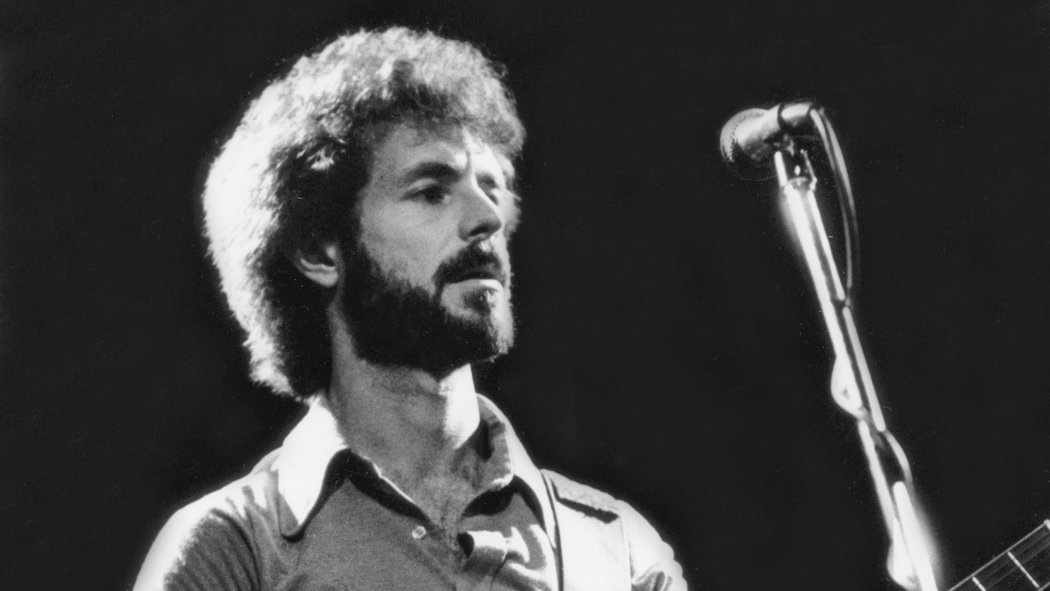


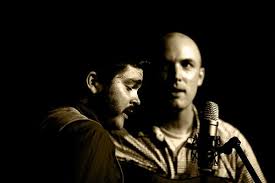 Thanks to some sweet harmonies, timeless originals from mournful to majestic, and reverent, pitch-perfect takes on Norman Blake’s Church Street Blues and Townes Van Zandt’s Loretta, Our Lady of the Tall Trees, the debut album from “new old-time” singer-songwriters and master instrumentalists
Thanks to some sweet harmonies, timeless originals from mournful to majestic, and reverent, pitch-perfect takes on Norman Blake’s Church Street Blues and Townes Van Zandt’s Loretta, Our Lady of the Tall Trees, the debut album from “new old-time” singer-songwriters and master instrumentalists  It’s rare for us to come back to an artist so soon after first discovery. But as noted in
It’s rare for us to come back to an artist so soon after first discovery. But as noted in  Midwestern singer-songwriter
Midwestern singer-songwriter 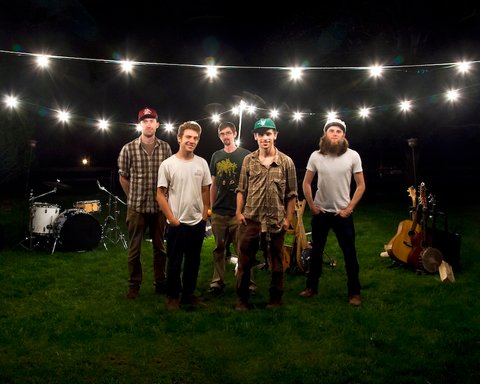 Finally, at least for today: they may have earned their place on the mainstage through top audience honors in the 2012 Emerging Artist’s Showcase, but their impromptu hour-long set in the sunwarmed vendor area at this year’s Falcon Ridge Folk Festival simply blew us away, with a cover of Ophelia, a couple of traditional barnstormers, and a small set of raw originals delivered with a combination of explosive energy and unceasing craftsmanship that both reinforced and transcended earlier comparisons to the Avett Brothers. Now, fresh off an onstage gig as the musical accompaniment for the American Repertory Theater’s winter production of Robin Hood, neotraditional Americana stringband Poor Old Shine are back home in their native Connecticut, and back on our radar with two holiday homages: a haunting Blind Willie McTell tune filmed by flashlight in a California cabin last Halloween, and a brand new Valentine’s Day delight that transforms 80’s Huey Lewis and the News soundtrack hit The Power Of Love into a loving living-room slowdance featuring their cosmic blend of old-time instrumentation and footstomping wail, trading off lines and harmonies like The Band in their very best bootleg days. Back To The Future, indeed: I’d say these guys are going places, but all I see is up.
Finally, at least for today: they may have earned their place on the mainstage through top audience honors in the 2012 Emerging Artist’s Showcase, but their impromptu hour-long set in the sunwarmed vendor area at this year’s Falcon Ridge Folk Festival simply blew us away, with a cover of Ophelia, a couple of traditional barnstormers, and a small set of raw originals delivered with a combination of explosive energy and unceasing craftsmanship that both reinforced and transcended earlier comparisons to the Avett Brothers. Now, fresh off an onstage gig as the musical accompaniment for the American Repertory Theater’s winter production of Robin Hood, neotraditional Americana stringband Poor Old Shine are back home in their native Connecticut, and back on our radar with two holiday homages: a haunting Blind Willie McTell tune filmed by flashlight in a California cabin last Halloween, and a brand new Valentine’s Day delight that transforms 80’s Huey Lewis and the News soundtrack hit The Power Of Love into a loving living-room slowdance featuring their cosmic blend of old-time instrumentation and footstomping wail, trading off lines and harmonies like The Band in their very best bootleg days. Back To The Future, indeed: I’d say these guys are going places, but all I see is up.

 I talk a good game in the hallways about how the new evaluation tool we use in my district: about how the tool is sound, but an inconsistent and aggressively biased application of it is a major focal point of the terror and frustration we feel as teachers. But it is also true that the threat of observation can prompt a healthy, deliberate attention to detail and self-reflection, a sort of critical, vocational soul searching which, when it works, can push us to be our best. It is a social scientist’s Heisenberg principle, in which the act of being observed changes the subject, using pressure to turn coal into diamond.
I talk a good game in the hallways about how the new evaluation tool we use in my district: about how the tool is sound, but an inconsistent and aggressively biased application of it is a major focal point of the terror and frustration we feel as teachers. But it is also true that the threat of observation can prompt a healthy, deliberate attention to detail and self-reflection, a sort of critical, vocational soul searching which, when it works, can push us to be our best. It is a social scientist’s Heisenberg principle, in which the act of being observed changes the subject, using pressure to turn coal into diamond.  As always, steeping too long in work has left me in too deep to move on quickly. My head swims still with questions, because of how deeply we considered them in our poems and analyses, because we were able to come to the higher order ones together. And I find myself pondering the world, and my place in it, after a day where everything went right, in a place where for so long I have been neither free nor safe.
As always, steeping too long in work has left me in too deep to move on quickly. My head swims still with questions, because of how deeply we considered them in our poems and analyses, because we were able to come to the higher order ones together. And I find myself pondering the world, and my place in it, after a day where everything went right, in a place where for so long I have been neither free nor safe.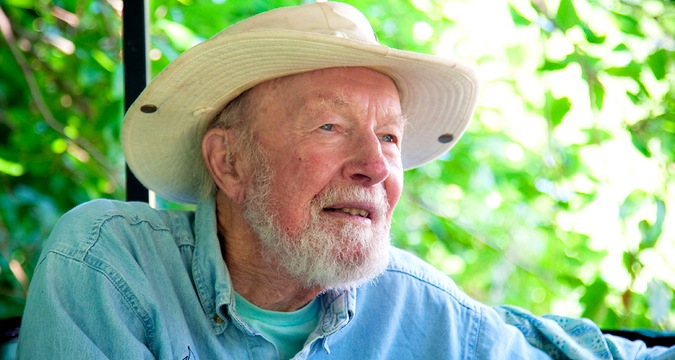
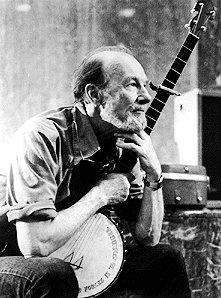 The son of an ethnomusicologist and a true believer in folk as a mechanism for tying past to future, perhaps more than any artist in history, Seeger lived folk song as if it truly did belong to the community for which it speaks. And although this practice was occasionally dismissed as a form of cultural disrespect, it is this, as much as his songs, which may well prove to be the longest lasting of his influence.
The son of an ethnomusicologist and a true believer in folk as a mechanism for tying past to future, perhaps more than any artist in history, Seeger lived folk song as if it truly did belong to the community for which it speaks. And although this practice was occasionally dismissed as a form of cultural disrespect, it is this, as much as his songs, which may well prove to be the longest lasting of his influence.  All I know about Edinburgh-based folk band Stampede Road is what they sent me, which wasn’t much: a pair of streaming split singles on
All I know about Edinburgh-based folk band Stampede Road is what they sent me, which wasn’t much: a pair of streaming split singles on 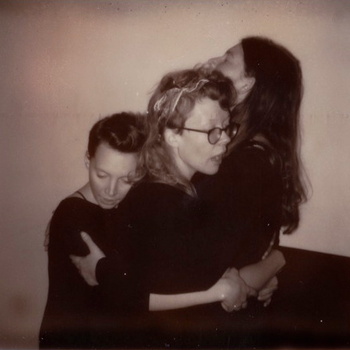 Fans of First Aid Kit and labelmates Deer Tick and Dolorean will love this recent John Denver cover from all-girl indie group Mountain Man, with its layered voices and gentle, melodic acoustic guitar. All of us love that Mountain Man, a trio of young twenty-something singer-songwriters who met at Bennington College, and were essentially dormant in the last few years after touring around 2010 debut Made the Harbour, appear to be back on the radar for more precious, precocious quietfolk in the months and years to come, both as a band, and with solo and side projects from members Molly Erin Sarle, Alexandra Sauser-Monnig, and Amelia Randall Meath, who continue to share news of recordings and shows with Hiss Golden Messenger, Megafaun, Feist, and other well known names from the indie community on
Fans of First Aid Kit and labelmates Deer Tick and Dolorean will love this recent John Denver cover from all-girl indie group Mountain Man, with its layered voices and gentle, melodic acoustic guitar. All of us love that Mountain Man, a trio of young twenty-something singer-songwriters who met at Bennington College, and were essentially dormant in the last few years after touring around 2010 debut Made the Harbour, appear to be back on the radar for more precious, precocious quietfolk in the months and years to come, both as a band, and with solo and side projects from members Molly Erin Sarle, Alexandra Sauser-Monnig, and Amelia Randall Meath, who continue to share news of recordings and shows with Hiss Golden Messenger, Megafaun, Feist, and other well known names from the indie community on 
